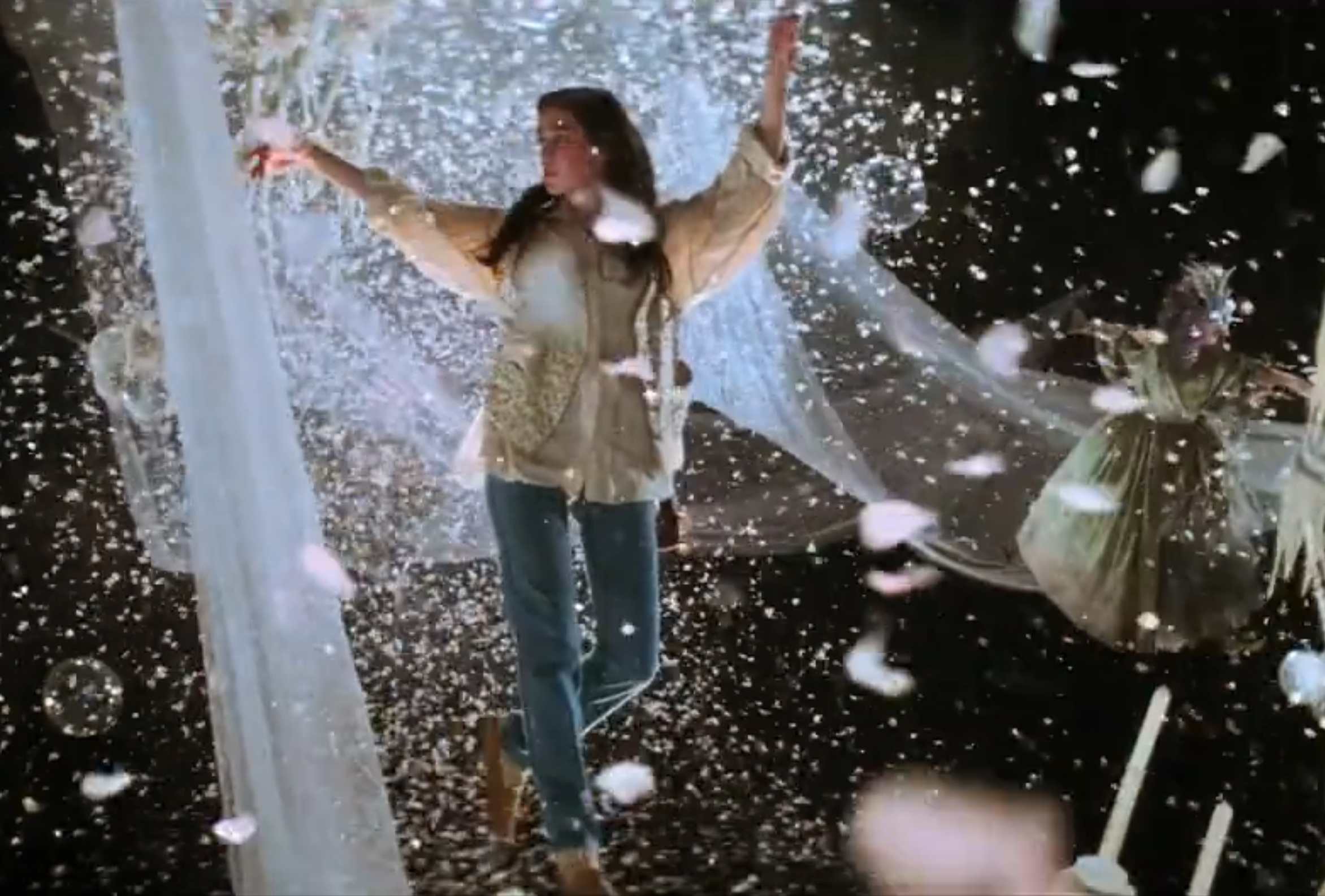Unexpected Wisdom in David Bowie's Classic Labyrinth
Set in a surreal dreamscape filled with symbolism, Labyrinth is a timeless David Bowie classic. But what if I told you it’s also overflowing with deeper messages of the nondual nature of the universe? Wisdom themes like inner transformation, self-realization and detachment from ego are cleverly woven into the film.
The Journey as a Metaphor for Inner Transformation
Labyrinth follows Sarah, a teenage girl who has to navigate a magical maze to rescue her baby brother from Jareth, the Goblin King.
But Sarah’s journey is more than just about saving her brother; it’s actually a symbolic representation of the inner work we all need to do. As she faces obstacles, she’s really being tested on how well she knows herself and where her real power comes from. The labyrinth's twists and turns? They’re like the distortions and illusions created by the ego-mind. Just like a spiritual seeker who must navigate their inner world to discover the truth, Sarah confronts her own fears, desires, and projections.
The Goblin King's Role as the Ego
Jareth (David Bowie) represents the egoic part of Sarah’s mind. He’s the master of distraction, tempting and manipulating her.
Just like the ego, Jareth tries to keep Sarah from the truth by creating confusion and doubt. He tries to charm her and when that doesn’t work he resorts to dark threats of magic. Sarah doesn’t buy into any of it - not for long anyway. There’s a moment when Jareth offers to make her the "queen" of her own world, but she doesn’t let this corrupt her. he tries and tries to cling to his control and power. But in the end, Sarah breaks free by realizing he has no true power over her.
Jareth: “Sarah beware, I have been generous up until now. But I can be cruel.”
Sarah: “Generous? What have you done that’s generous?”
Jareth: “Everything. Everything that you wanted I have done.”
The Mirror
The mirror scene at the beginning of the movie, where Sarah practices her lines from the play, is highly symbolic. Sarah begins the movie lost in the illusions of her own mind and life, but the labyrinth forces her to "see" herself more clearly.
In spiritual traditions, mirrors often represent self-reflection and the ability to see beyond appearances. The mirror is a metaphor for self-inquiry, which is a key practice in nonduality. Through self-inquiry, we begin to question the thoughts and beliefs that make up our identity, realizing that our true nature is not the reflection but the awareness behind it.
The Illusion of Time
There are so many references to clocks, time running out, and the fear of losing time and fear of what happens if we run out of time.
Sarah has 13 hours to rescue her brother. But it’s not like the time Sarah is used to. The labyrinth operates in its own space, where time bends and warps—much like the illusion of time in wisdom teachings. In nonduality, time is seen as a mental construct, an illusion created by the mind. The true self exists outside of time, in the eternal present moment. Sarah’s ultimate realization comes when she stops worrying about time and instead focuses on what is real—the journey.
The Power of Beliefs
A key moment in the film is Sarah’s realization that Jareth’s power is derived entirely from her belief in him. By saying the words, "I am as strong as you. My kingdom is great and you have no power over me," she breaks the spell.
This is a direct reference to the power of belief and perception in shaping our reality. When we recognize that false beliefs are illusory, the world’s power over us dissolves, revealing the underlying truth of unity and freedom. Sarah's final epiphany is a moment of spiritual awakening, where she realizes that the external power she feared was just an illusion of her own mind.
Surrender
Throughout the labyrinth, Sarah constantly tries to control the situation, but it's only when she stops trying to force her way through and starts trusting in herself and her surroundings that she begins to make progress.
The ultimate lesson she learns is to surrender—not in the sense of giving up, but in letting go of her ego-driven need for control. Surrender is a fundamental aspect of nondual teachings. It's the recognition that our personal will, driven by ego, is limited, and that by surrendering to the flow of life (or the divine), we align with a deeper, truer reality. In the film, Sarah’s journey is a process of surrendering her egoic desires and stepping into her true power.
Integration of the Shadow
At the end of the movie, Sarah is in her bedroom with all the characters from the labyrinth. It’s as if she broke through the unreal separation between her conscious and unconscious mind.
In nonduality, this could be seen as the integration of shadow aspects of the self—the parts we have disowned or suppressed—into our conscious awareness. True awakening involves integrating all parts of ourselves, including the shadow aspects we may not like. It is through embracing both light and shadow that we experience wholeness and unity, which is the heart of nonduality.








